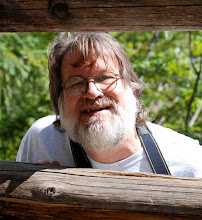This Is a Serious Question
This is a serious question: is there some unwritten law no one has shared with me that prohibits characters in woo-woo movies and novels from being inquisitive about their paranormal encounters?
If I saw Shoeless Joe Jackson standing on a baseball field that I made out of a cornfield after a voice told me if I built it he will come, I’d have a few questions. I wouldn’t just leave it at, “Oh, there’s Shoeless Joe Jackson. Hi there.”
Don’t get me wrong. “Field of Dreams” is one of my favorite movies. That’s largely because it whets my appetite for more answers about why we’re here on this planet.
Yet I’ve always wondered why authors and screenwriters are so reluctant to mix it up with the good stuff. Even Roger Ebert wrote in his 1989 review, "The movie sensibly never tries to make the slightest explanation for the strange events that happen after the diamond is constructed."
Sensibly?
Personally, I want explanations. I want to be challenged by an artist’s vision of wha’ happened. Wouldn’t it be an awesome sequel to see what happens to Terence Mann when he enters the mysterious clubhouse in the cornfield, presumably to discover all those juicy secrets hidden from those of us stuck in the flesh?
“Message in a Cornfield” would be much better than “Message in a Bottle.”
Why are we so reluctant in our mainstream media to wonder aloud about our cosmic nature? Is it all marketing, marketing, marketing? Is it a case of separation of church and entertainment?
Personally, if I were Ray Kinsella and met my deceased father, I’d have a few questions. For starters, “Dad, did you know you’re dead?”
Or is that not appropriate guy talk?
“Ray, you live on an intellectually challenged planet. No one here gives a flying peacock about what happens after you die. So let’s just have a catch.”
“Dad, how can a dead father materialize in Iowa, regress thirty years in age, and have nothing to say about human destiny?”
“Sh-sh-sh. Now, now. See if you can catch my curve?”
A daring film in the spiritual cinema genre was “What Dreams May Come” based on the novel by Richard Matheson. It was daring because it at least toyed with some metaphysical concepts like creating your own reality with your consciousness. The film showed how Chris Neilson’s (Robin Williams) external heavenly world changed as his inner world changed.
Even so, no less of a character than a heroic doctor and family man who’d lost two children in a fatal car wreck had much profound to ask when he reached the spirit world. He finally asks, “Where’s God in all this?”
His guide replies, “Oh, he’s up there … somewhere … shouting down that he loves us, wondering why we can’t hear him, you think?”
Is it just me? Isn’t that the most banal reply from a spirit who just may (just should) have more insight into the workings of the Universe?
So I was just wondering if there’s any unwritten rule about characters using their brains to wonder about their role in the universe.
Benjamin Fields, the main character in my novel, opens thing by writing a note to God.
“Dear God:
“I heard Jerry Falwell say on TV that you only admit people into heaven if they accept Jesus Christ as their personal savior. If that’s true, I’m already in deep shit... “
Behind every tombstone in every cemetery in the world dwells a question mark. I support our art in panning the goldfields of speculation for sparkling answers.


0 Comments:
Post a Comment
<< Home